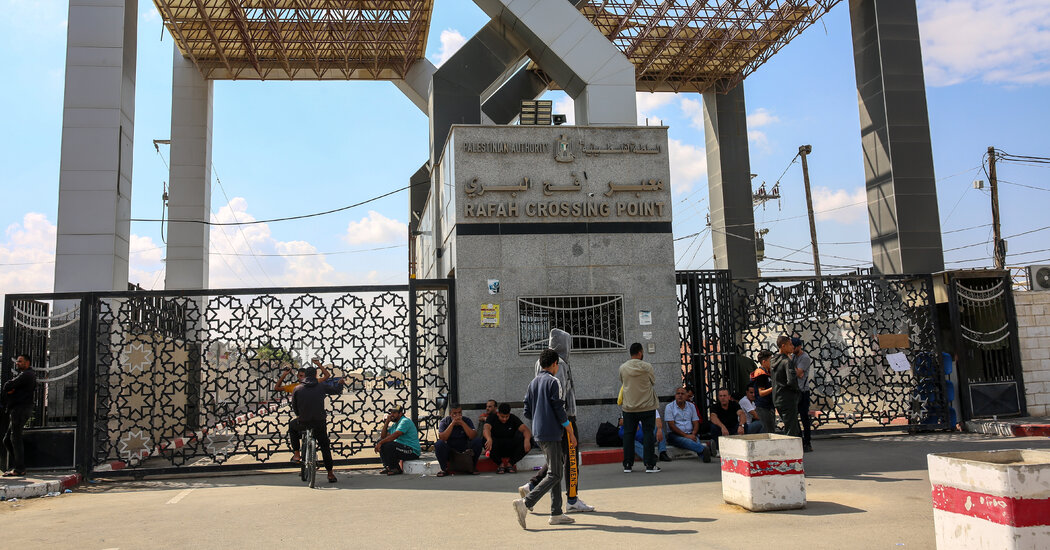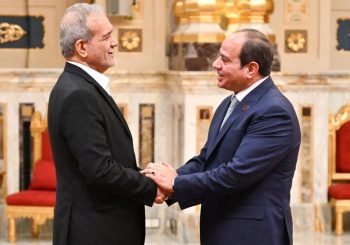Egypt denied allegations by Israel brought to the International Court of Justice (ICJ) on 12 January that accuse Egypt of preventing the entry of humanitarian and relief aid into the Gaza Strip from the Egyptian side of the Rafah Crossing.
In a statement, chairman of the State Information Service (SIS), Diaa Rashwan, said that Israeli officials — including the prime minister, the minister of defense, and the energy minister — have confirmed dozens of times in public statements since the start of the aggression of Gaza that “they will not allow aid to enter Gaza Strip, especially fuel because this is part of the war that their state is waging against the Strip.”
Rashwan added that Israel, having found itself accused with documented evidence of war and genocidal crimes, resorted to throwing accusations against Egypt in an attempt to escape its likely condemnation by the court.
“Egypt has announced dozens of times in official statements, starting with the President of the Republic, the Ministry of Foreign Affairs, and all concerned parties, that the Rafah crossing from the Egyptian side is open without interruption, calling on the Israeli side not to prevent the flow of humanitarian aid to the Strip and to stop deliberately obstructing or delaying the entry of aid under the pretext of inspection,” he noted.
Egypt’s sovereignty only extends to the Egyptian side of the Rafah Crossing. The trucks that travel from the Egyptian side to the ‘Karem Abu Salem’ Crossing — which connects the Strip to Israeli territory — have to be inspected first by the Israeli army before allowing aid to enter the Strip.
The priority of the Egyptian government since the beginning of the war has been deescalation and the securing of a path for aid to enter the Gaza Strip through the Rafah crossing. Israel bombed the crossing at least six times, and limited aid trucks have crossed to Gaza so far, which UN officials warn is insufficient amid dire humanitarian conditions.
In early November, negotiations regarding a humanitarian ceasefire between Egypt, Qatar, and the United States resulted in a weeklong ceasefire. However, Rashwan said that the negotiations “witnessed extreme intransigence on the part of the Israeli side in determining the amount of aid that the occupation forces would allow to enter the Strip, given that they control it militarily, which resulted in the end of the entry of quantities announced at that time.”
He added that if Israel has the genuine desire to allow food into the Strip, then it should open its six crossings with Gaza.
“They must open immediately for trade and not for the entry of aid, especially since this trade with the Gaza Strip had reached more than $4.7 billion in 2022 for the benefit of the Israeli commercial and industrial sector,” Rashwan said.
The ICJ held two hearings on 11 and 12 January in response to South Africa’s emergency request that argues that Israel’s actions exhibit a “genocidal character,” signifying the intent to annihilate Palestinians in Gaza.
Over 23,708 Palestinians have been killed in the Gaza Strip — including at least 8,000 children — and over 60,005 others injured. Meanwhile, at least 332 Palestinians have been killed in the West Bank and at least 4,157 have been injured.






Comments (3)
[…] Chairman of the State Information Service Diaa Rashwan was quick to deny the […]
[…] رشوان رئيس الهيئة الوطنية للاستعلامات قريبا سلبي […]